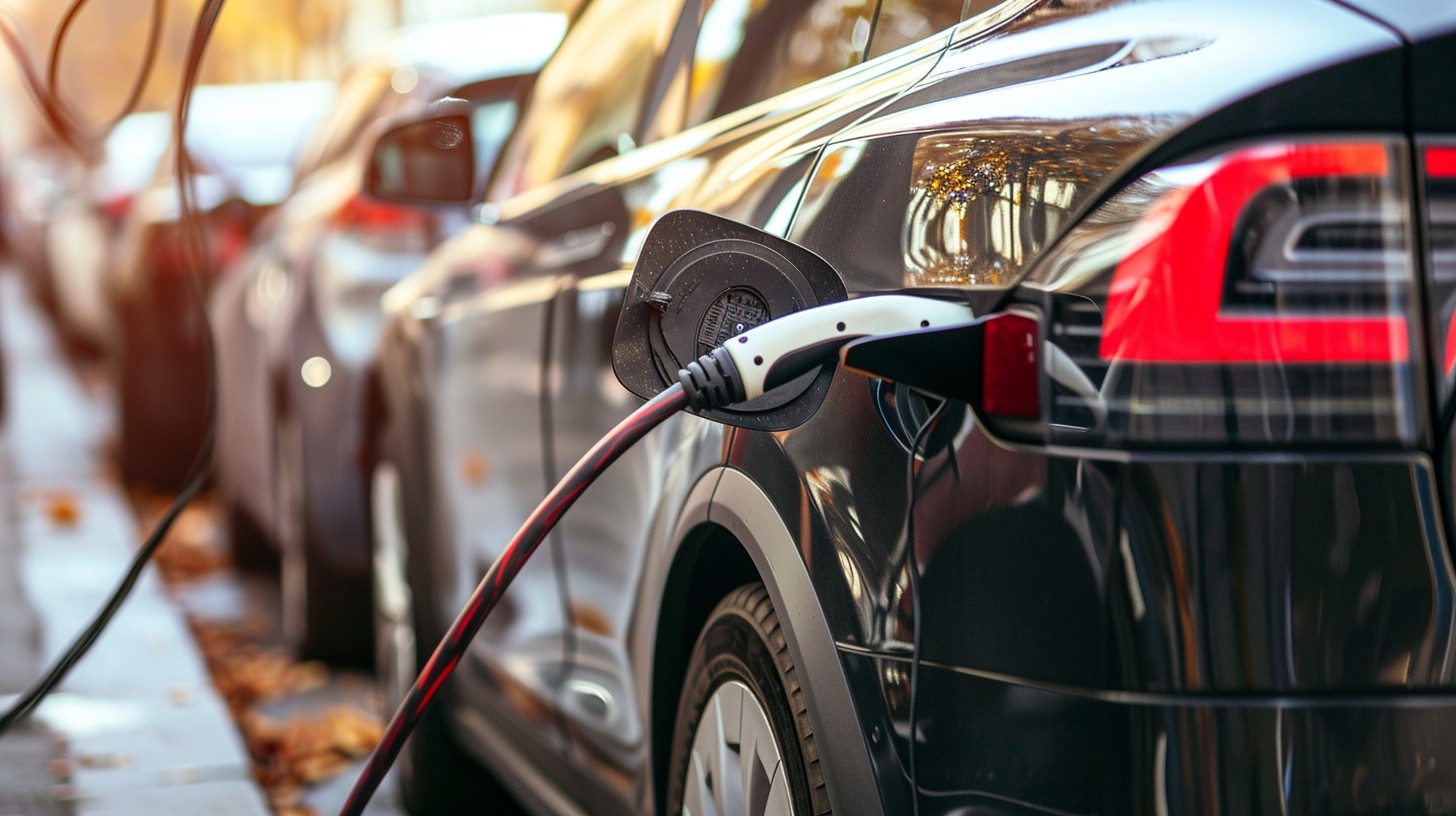
Many individuals and families purchase hybrid and electric vehicles (EVs). In fact, according to the U.S. Energy Information Administration, EVs accounted for over 16% of United States light-duty vehicle sales in 2023.
A person could decide to buy an EV or a hybrid for lots of reasons– some personal, some environmental; and regardless of why someone chooses an EV, they purchase that vehicle with a reasonable expectation that their car will work how it’s supposed to once they own it.
Here’s the problem: some vehicles don’t work the way they should after we buy them. This can even be true when a car is a recent purchase.
People need reliable ways to get from Point A to Point B. If they have been sold a lemon vehicle, they have a right to pursue compensation. Navigating lemon law claims for hybrid and electric vehicles doesn’t need to be difficult, but there are some things you should know about the process.
What is a lemon car?
The term “lemon” is used to describe cars that function improperly due to specific kinds of problems. Lemons are vehicles that have manufacturing issues that should be covered by warranties. These problems affect cars’ safety or utility (sometimes, they affect both).
A lemon car is not safe or reliable. Somebody who realizes their electric vehicle or hybrid is a lemon may be able to work with a lawyer for lemon laws. Lemon law attorneys help their clients understand laws about lemons and may be able to help you seek justice in the form of direct monetary compensation, unpaid repair, or free replacement of a lemon vehicle.
For more information on arbitration and other frequently asked Protection for Electric Vehicles questions, click here.
New, exciting electric vehicle technologies also mean unique problems with electric vehicles
Any car can present problems. Unfortunately, this is even true when a car is new. EVs come with their own set of potential issues, though. All the modern and evolving technology that is incorporated into electric vehicles and hybrids is exciting– but it also opens a door to the possibility of unique complications.
EV and hybrid lemons often present some of the same problems:
- Battery charging issues (short range, long charge time)
- Battery fires
- Malfunctioning software
- Poor cold weather performance
How do lemon law claims for hybrid and electric vehicles work?
When somebody wants to pursue compensation after purchasing a lemon EV or hybrid, they need to take several steps. Understanding how to go about the process helps make it easier.
- One of the key ways to simplify a lemon law claim for an EV is to work with a lemon law lawyer. Lawyers are knowledgeable about state and federal lemon laws. They help collect evidence and will protect clients’ interests in court if necessary
If you’re wondering how to pursue a lemon law case, here’s a basic overview…
You must submit a written complaint about your lemon vehicle
People seeking justice after purchasing lemon vehicles need to submit written complaints about their cars. These complaints should be sent to either the manufacturer of the car or to its authorized representative. Complaints need to include basic information like:
- The date of vehicle purchase
- The EV or hybrid’s make, model, year, and serial number
- A description of the defect or other issue that the car is presenting
- Copies of relevant documents (like repair orders and invoices)
Think you have a lemon, click here to fill out a 30 second form.
This is the first step to filing a lemon law case for an electric vehicle. The manufacturer or dealer must respond to the complaint via a notice (in writing). Notices must cover:
- An explanation of what the manufacturer or authorized representative found to be wrong with the vehicle
- The manufacturer or authorized representative’s proposed resolution to the problem
- An explanation of the decision made
What compensation should a manufacturer or authorized representative offer for a lemon EV or hybrid?
After receiving a lemon vehicle complaint and determining that a car is a lemon, manufacturers or authorized representatives should offer reimbursement for the problem.
The process begins with the manufacturer or dealer attempting to repair the defect. The repair must be completed after a reasonable number of attempts. If this doesn’t occur, a vehicle purchaser may receive compensation in the form of either a full refund for the vehicle or a replacement vehicle.

Image Source : https://stockcake.com/i/mechanic-at-work_159978_22348
Repairs, towing, rental car fees, and other expenses after buying a lemon can also all cost a vehicle buyer money. These are often compensable under state and federal lemon laws.
Unfortunately, manufacturers and authorized representatives are known to offer inadequate reimbursement for lemon EVs. Some refuse to admit that a car is a lemon vehicle at all. In these cases, it’s necessary to move forward with additional effort to receive compensation.
Is filing a lemon law complaint difficult?
While filing a complaint for a lemon EV or hybrid might seem straightforward, the process can actually take a lot of work. Many people find communicating with manufacturers and authorized representatives to be a stressful experience.
Receiving a denial or a lowball offer can add to that stress. Collecting all of the records you need to submit with your complaint is often tedious. Sometimes, it’s difficult to be sure that you have made enough attempts to get the vehicle repaired before you decide to file your complaint.
This is where a lemon law attorney comes into the picture. He or she can help you ensure that your complaint is complete and thorough. They will organize your documents, assist you in taking the correct steps to show you have tried to handle the problem yourself, and can help escalate the issue if necessary.
Disputing a lemon vehicle decision– filing a lawsuit
People who unknowingly purchase lemon vehicles have a right to dispute decisions made by manufacturers or authorized representatives after they submit a formal complaint.
This process involves filling a claim through the attorney general’s office. State and federal lemon laws require that, if the attorney general determines your claim is valid, you receive the relief you are legally entitled to.
- It is crucial to maintain clear records of communication with a manufacturer or authorized representative; these must be submitted alongside the details and records from the initial complaint filed
Ideally, this is when a settlement is reached if one could not be reached before. Sometimes this is not the case. If a person still has not received compensation for their lemon vehicle by this point in the process, an attorney can help move the case to trial.
If you believe that you have purchased a lemon EV or hybrid, you have a right to compensation. Some people elect to go through the process of seeking relief on their own. Many find better results when they partner with an experienced lemon law attorney. These lawyers have a deep understanding of lemon laws. They have filed hundreds– sometimes thousands– of claims and know what steps should be taken to protect your financial wellbeing and physical safety.
Reach out to a qualified lemon law lawyer if you have questions about your new hybrid or electric vehicle. It may be the difference between an inadequate offer (or no offer at all) from a manufacturer and you receiving the relief you are entitled to.
